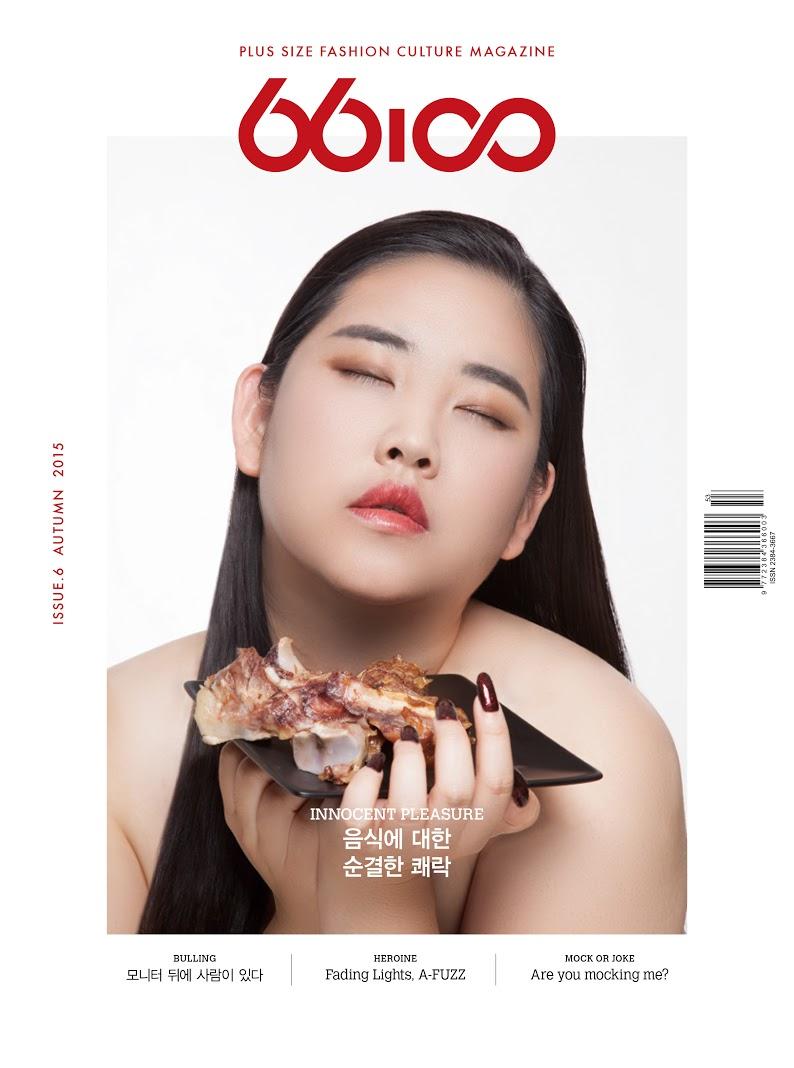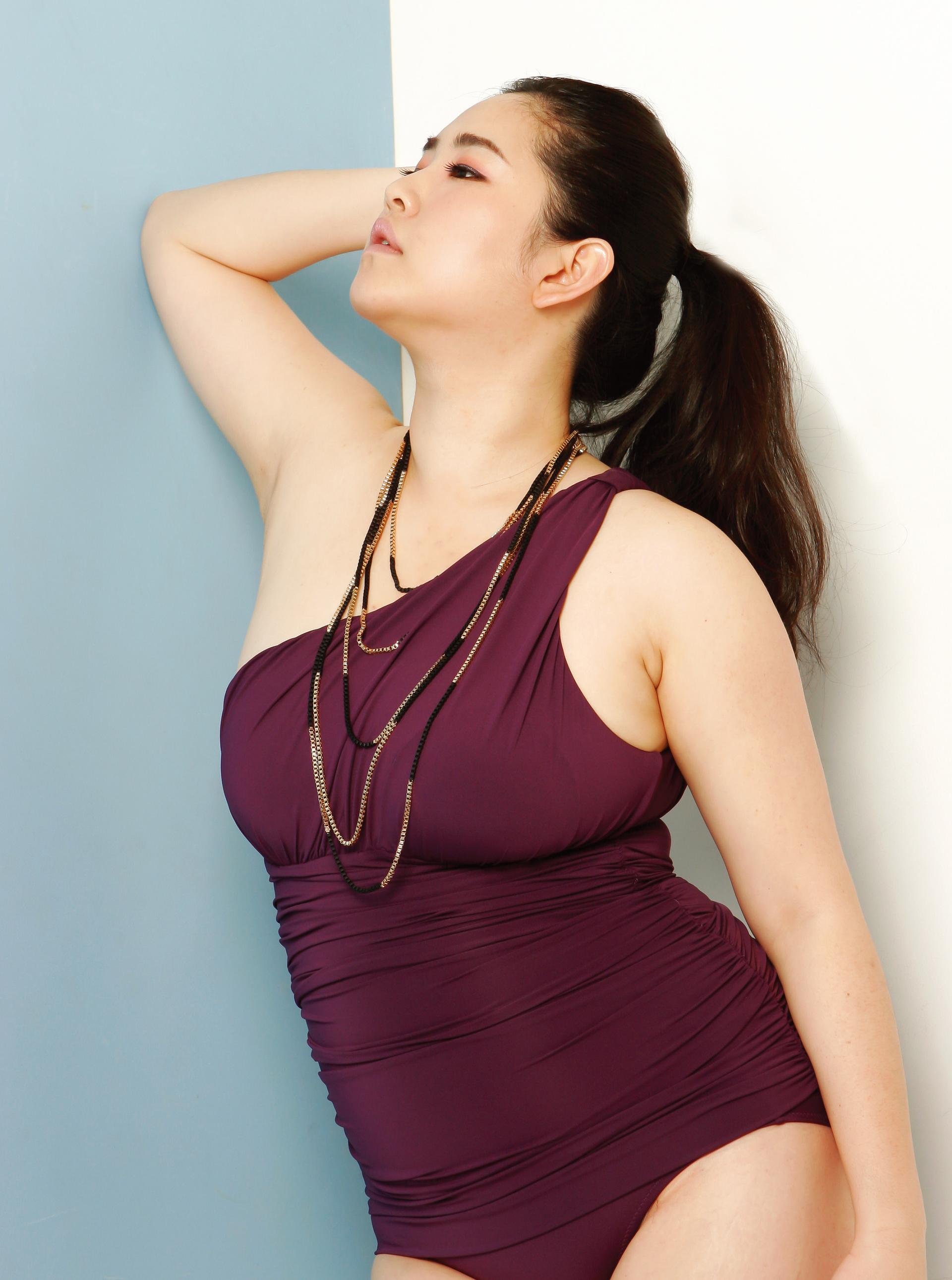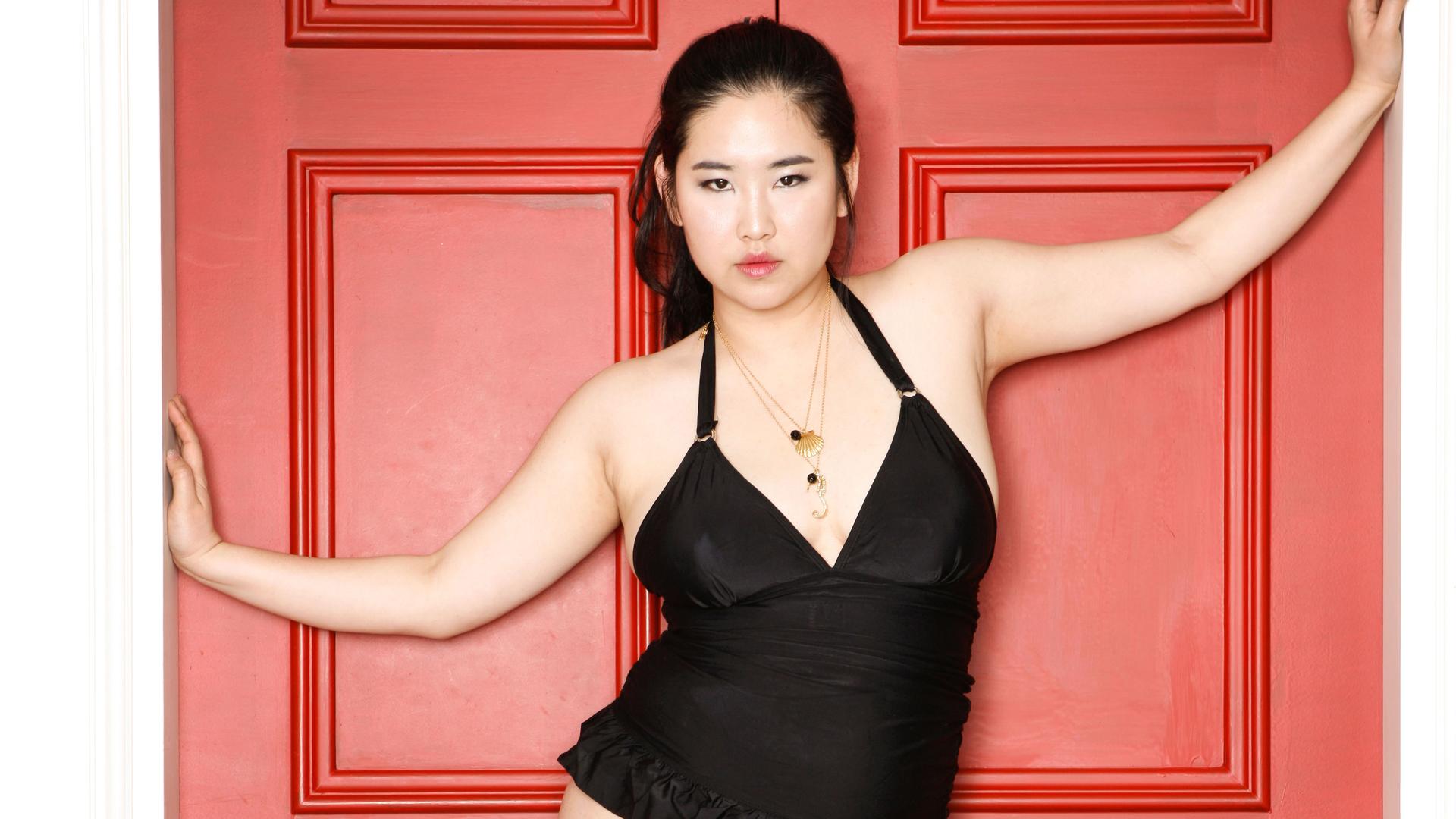Plus size model Kim Gee-yang says her mother always told her she was fat and needed to lose weight. Now she's proud of what her daughter has accomplished.
In the United States, Kim Gee-yang would be considered curvy, but in South Korea, she says people just see her as a “fat woman.”
The 29-year old is 5-foot-5 and weighs 154 pounds. She says Korean women like her have a hard time finding clothes that fit — anything above the equivalent of an American size 6 is considered plus size here.
“I’m kind of an alien in Korea,” Kim says with a laugh. She says people who are plus size in Korea don’t socialize much; they stay away from shopping malls and other public places.
Not Kim, who claims to be Korea’s first plus size model.
She got her break during the 2010 Full Figure Fashion Week in Los Angeles. Kim strutted down the runway in a black corset and a leather skirt, a whip in her right hand.
In many countries and cultures, there’s an enormous emphasis on being thin and having a “perfect body,” but it’s especially pronounced in image-conscious, plastic-surgery crazed South Korea.
While in LA, Kim recalls being told that she was too skinny to model plus size clothing. But back home, she says women like her are constantly reminded by everyone how big they are.
“My mother always said to me 'you are so fat' and 'you have to lose your weight.' And when I met my friends, they said you are fat or lose your weight,” Kim recalls.
At first, her parents didn’t want her to go into modeling, but now they’re proud of what she’s accomplished.
In addition to LA, Kim has done runway shows in Miami and the Caribbean. She’s also been a finalist in photo contests for Benetton and American Apparel, but she says no Korean fashion shows or magazines will hire her.
So, she started her own magazine that features plus size models.
It’s called 66100 (66 and 100 are the maximum sizes in centimeters, respectively, for women and men’s clothing sold in Korean retail stores. Kim takes a size 88 (she says she wears an American size 8).
On the cover of the latest issue, Kim is clutching a chunk of fried pig’s feet with her manicured fingertips. The picture goes with the feature article, “Innocent Pleasure” — Kim writes that you shouldn’t feel guilty for eating what you like.

66100 also encourages people to not feel ashamed of what they look like. The magazine’s motto is “No Matter What, You Are Beautiful.”
That message inspired Lee Hyun-gyeong, 23, to give modeling a shot.
“It’s changed my life,” says Lee, who last year won 66100’s makeover contest and now models for the magazine’s online store. She wears a Korean size 99.
“I was afraid to have my picture taken. Compared with other people, I look bigger and I always looked sad in pictures, I thought I was ugly,” Lee says. “Now my friends and family say I seem so much happier and they say they never knew how pretty I was.”

Kim Gee-yang has many supporters for her magazine, but there are still plenty of haters. She recalls seeing some online comments that ridiculed her appearance and also threatened her with sexual violence.
Kim says the remarks upset her, particularly because of the way they might affect the confidence of other plus size people in Korea. But she thinks she’s found a way to take away the power of these insults.
“I captured the comments and printed them in this issue,” she says. Now that she’s taken control of these words, she says, they can no longer hurt her or anyone else.
The story you just read is accessible and free to all because thousands of listeners and readers contribute to our nonprofit newsroom. We go deep to bring you the human-centered international reporting that you know you can trust. To do this work and to do it well, we rely on the support of our listeners. If you appreciated our coverage this year, if there was a story that made you pause or a song that moved you, would you consider making a gift to sustain our work through 2024 and beyond?
